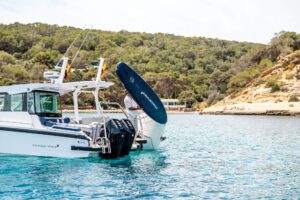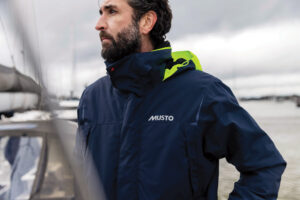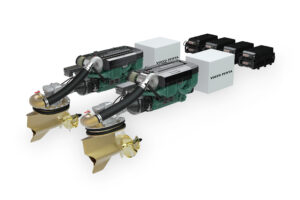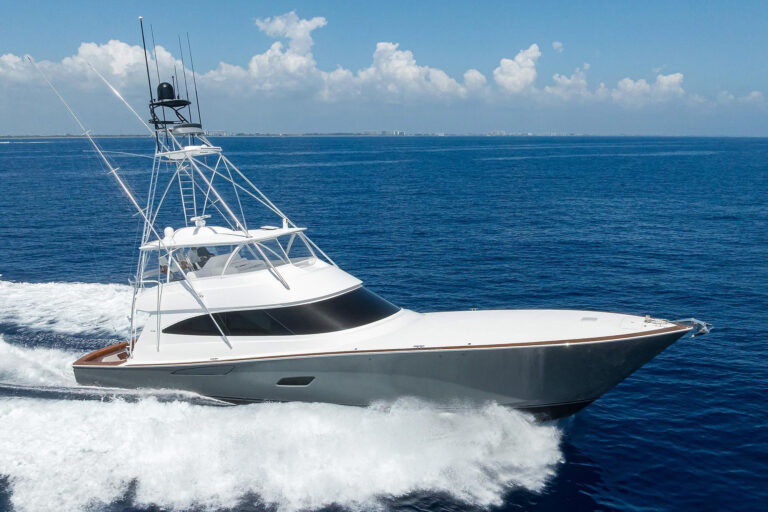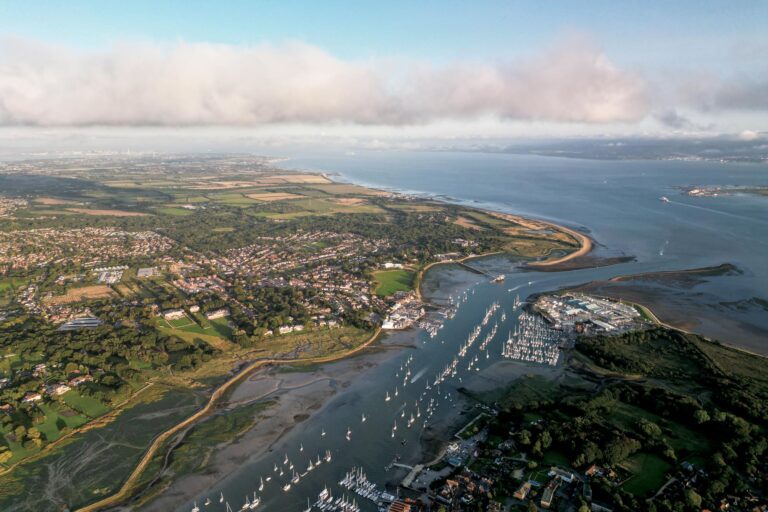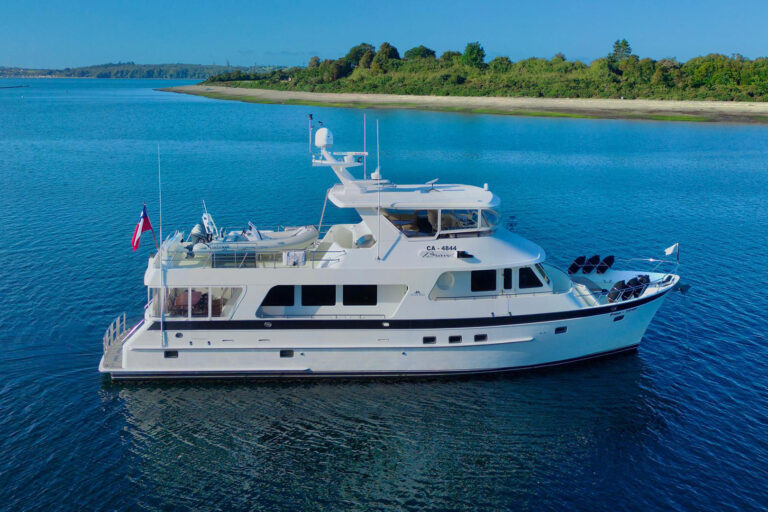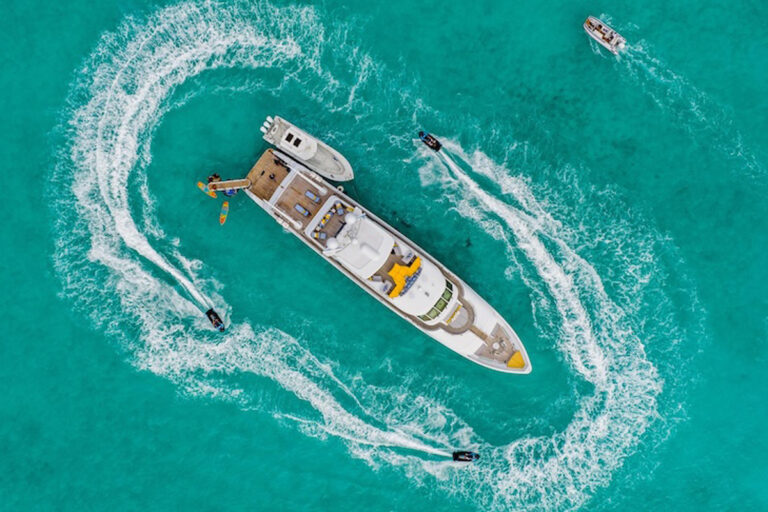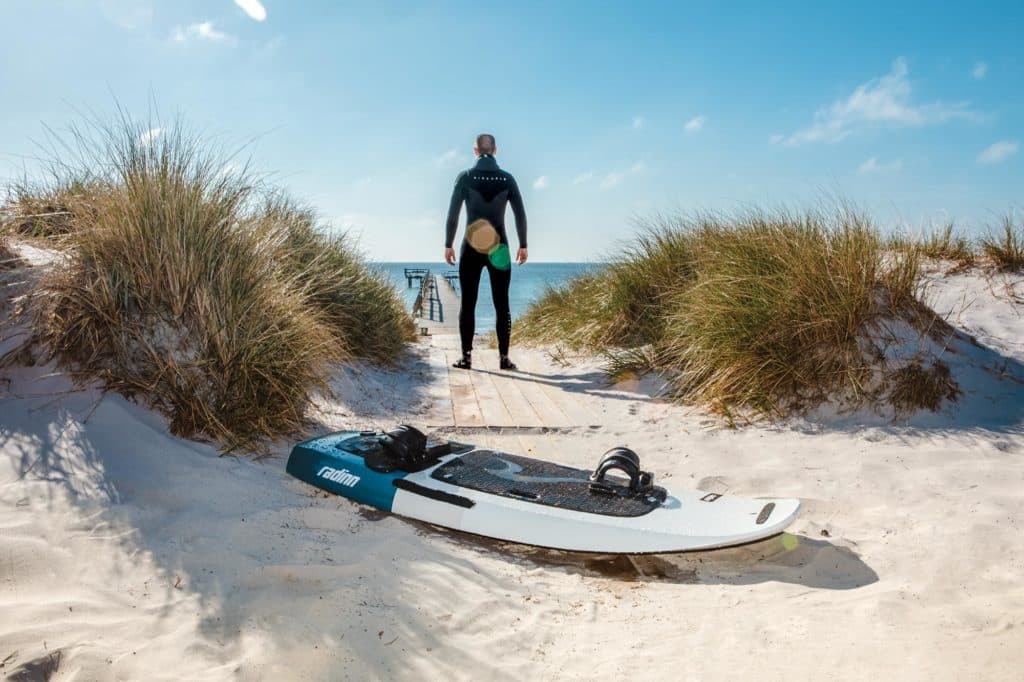
They really couldn’t have planned it any better. Just as the world is learning to live with the COVID-19 pandemic—including flocking to single-person watersports such as kayaking and paddleboarding—several manufacturers of fully electric, jet-powered boards are releasing new models that elevate the water-toy category for riders of all kinds.
Sweden-based Radinn, which has been building boards since 2015, has three lines of boards with different shapes and features for riders of varying abilities. Explore boards (starting at $6,550) are for beginners, while Freeride models (base price $7,750) offer an intermediate combination of stability and agility. The Carve line ($8,950 to start) is for experienced riders who really want to lean into turns and more.
And if none of those options sound ideal, competing companies offer yet more styles. Florida-based YuJet released its first product, the YuJet Surfer, this past summer. Its shape is more readily compared to that of a surfboard and is promoted as being able to rip through waves while helping to keep the rider balanced.
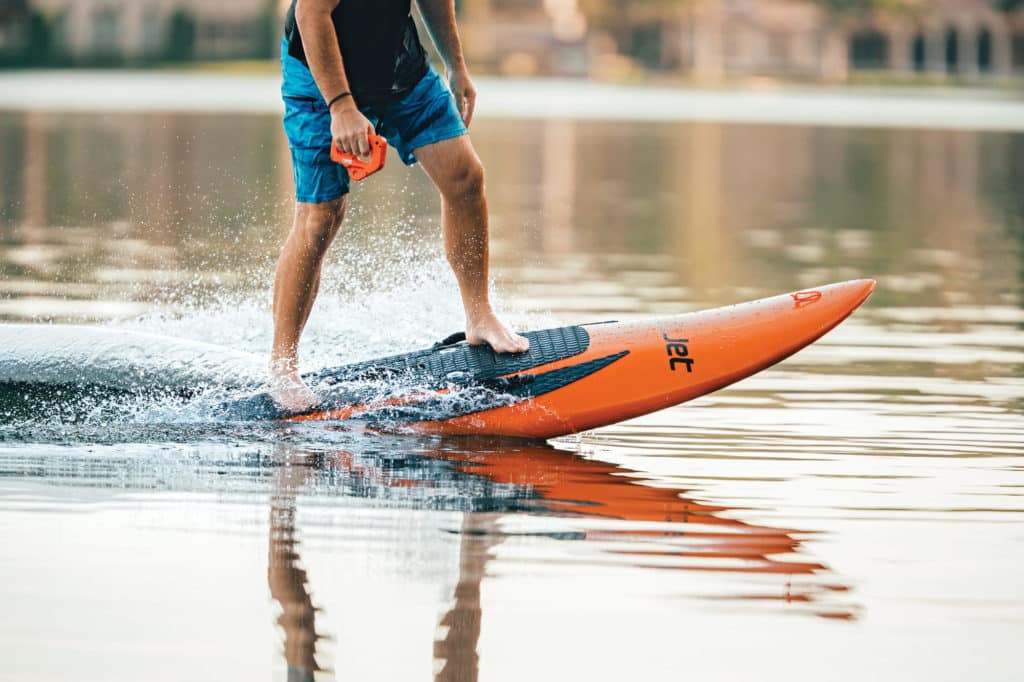
Companies that make electric boards also are now offering all kinds of accessories that yachtsmen can use to tailor the experience, beyond the shape of the board itself. YuJet, for instance, offers a wheel set ($99) that makes it easier to transport the 20-pound carbon board (with its battery removed) down, say, a long dock at the marina or across a beach that leads to an optimal riding zone. Radinn has standard and speed chargers ($550) that could be ideal for busy charter yachts where recharging the board’s battery needs to happen fast, to keep larger groups of riders happy. And both companies offer replacement batteries that let riders swap out the power pack at a yacht’s swim platform, to spend more time on the water.
Speeds on all of these boards are variable, topping out around 20 to 25 knots. They are thus slower than most personal watercraft, and quieter, with electric power systems. In spots where PWC are banned because of the wakes and noise they produce, these boards offer an increasingly customizable option.

